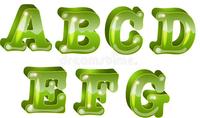So Many Functions!

Let there be functions and :
, ,
Then, can be expressed as two different functions, or .
Then, let . Find the sum of all complex zeroes of .
Definitions:
means
means the inverse of the function .
The answer is -4.
This section requires Javascript.
You are seeing this because something didn't load right. We suggest you, (a) try
refreshing the page, (b) enabling javascript if it is disabled on your browser and,
finally, (c)
loading the
non-javascript version of this page
. We're sorry about the hassle.
Let a − 1 ( x ) = x − 2 and c − 1 ( x ) = x . The three-fold composition computes to:
a − 1 ( b ( c − 1 ( x ) ) ) = x + 2 1 − 2 ⇒ S 1 ( x ) = x + 2 1 , S 2 ( x ) = − 2 .
Taking d ( x ) = S 1 2 ( x ) + S 2 2 ( x ) = ( x + 2 ) 2 1 + 4 = 0 , the complex zeros compute to:
x + 2 1 = ± 2 i ⇒ x = − 2 ± 2 1 i
and sum to − 4 .